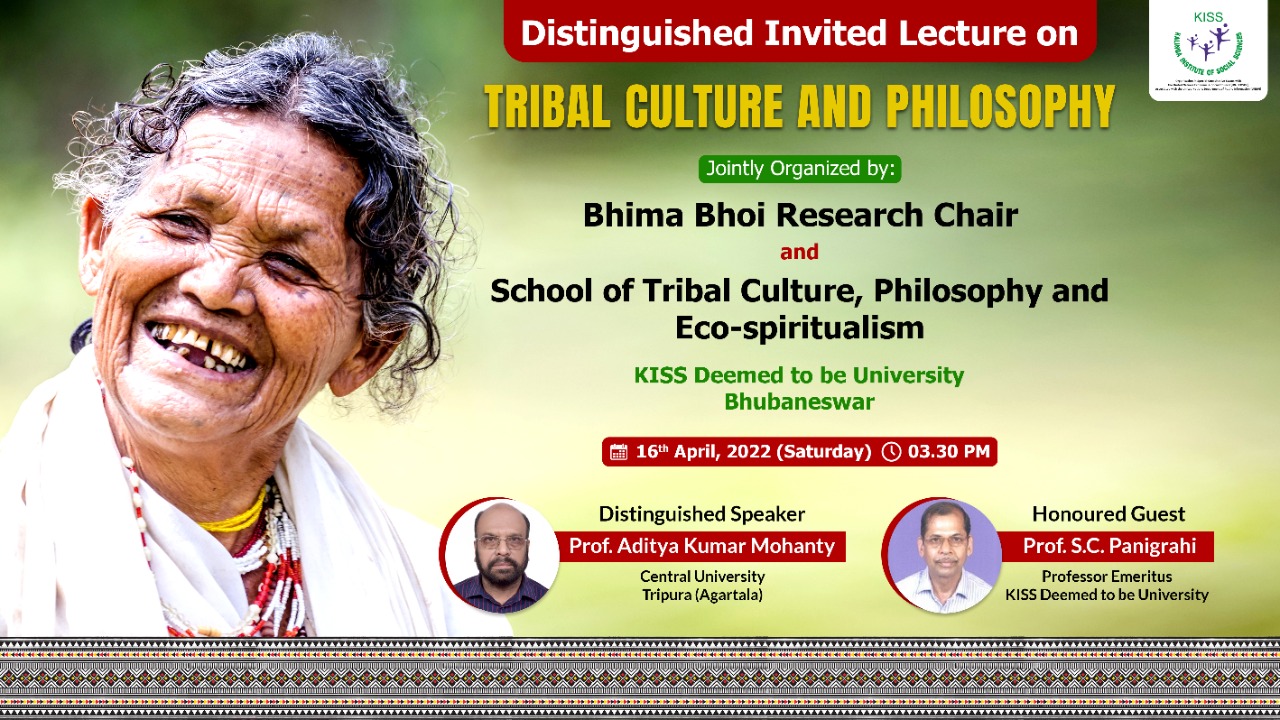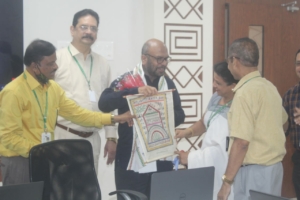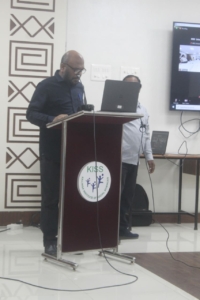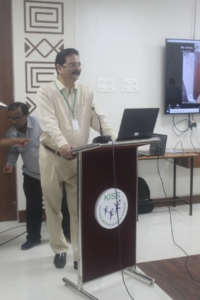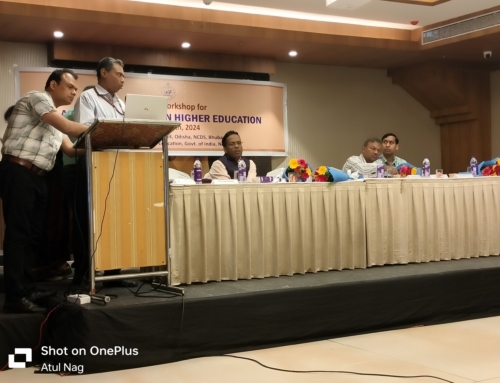Bhima Bhoi Research Chair, in collaboration with the School of Tribal Culture, Philosophy and Eco-Spiritualism (TCPE), KISS-DU, organized an invited lecture by Professor Aditya Kumar Mohanty, Professor of Philosophy, Central University, Tripura on ‘Tribal Culture and Philosophy’ in blended-mode on 16th April 2022.
Professor Mohanty explained how a man is different from other creatures for his reasoning power. Philosophy is embedded in every human psyche. It is the art of critical thinking by which a man can distinguish between the pleasurable and preferable, desirable and undesirable. Dr. Mohanty added that there is no articulated philosophy or academic philosophy in tribal people; they have a profound sense of solving their problems. A tribal headman who is an uneducated, unexposed person settles down disputes that are accepted and done in that community.
He illustrated the distinction between civilization and culture by elaborating that civilization speaks of what we have, whereas culture explains what we are. Tribal people are known for their uncorrupted minds and native innocence. The economic life of the tribals is driven by need, not by greed. The respect and gratitude for nature also constitute the hallmarks of tribal life. Their lifestyle is backed by sharing, caring, and cohesive relations with their fellow beings, animals, plants, and nature for the well-being of all community members at large.
Professor Deepak Kumar Behera, Vice-Chancellor, KISS-DU, presided over the session and felicitated the distinguished speaker. Professor Sarat Chandra Panigrahi, Professor Emeritus explained the dedicated life of Professor Aditya Kumar Mohanty for the cause of philosophy and his consuming passion for the needy human beings, especially the deprived orphans and destitute children.
Speaking on the occasion, Professor Harischandra Sahoo, Chair Professor, Bhima Bhoi Research Chair, said that culture is represented through a particular group of people’s lifestyle, language, customs, habits, and social behaviour. A culture is sedimentation because it is the outcome of social ethos developed from one generation to another. A tribal culture represents the belief systems, love for nature, aesthetics, performing art, and the love for God as the common destiny, he added.
The Cultural Wing of KISS-DU presented a tribal song on the occasion depicting the significance of the nature of tribal life. The session witnessed a fruitful discussion in which the students, research scholars and the staff members participated. Dr. Ratnakar Mohapatra, Dean, School of Tribal Culture, Philosophy and Eco-Spiritualism, extended words of thanks.

